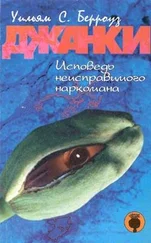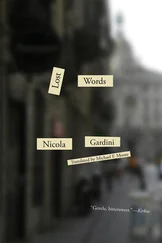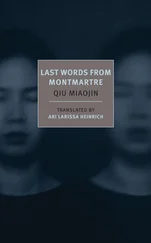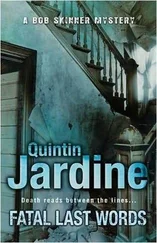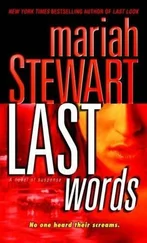Calico Jane’s death in mid-November was just two weeks before the “Ports of Entry” show closed with The Nova Convention Revisited, a gala tribute to Burroughs at the University’s Lied Center for the Performing Arts. The performers were old friends of his, veterans of the Nova Convention of 1978 in New York; the house was packed, and William was touched by the community’s outpouring of affection and admiration. Two months later, in early February 1997, his eighty-third birthday was observed by a quiet gathering of friends in his home.
On a typical day in the last year of William Burroughs’s life he would awaken in the early morning and take his methadone (he became re-addicted to narcotics in New York in 1980, and was on a maintenance program the rest of his life) and then return to bed. If the day were Thursday, I would arrive at 8:00 A.M. to drive him to his clinic in Kansas City, or—after he had finally earned a biweekly pickup schedule—take him out to breakfast, so that his house could be cleaned. At about 9:30 A.M. on all other mornings William would arise and—in his slippers, pajamas, and dressing gown—make his breakfast, sometimes a salted soft-boiled egg with toast, or perhaps fresh-squeezed lemonade, and two cups of very sweet tea. Feeding his many cats at the beginning of each day took up considerable time, only after which would he shave and dress himself, by about noon.
William might have visitors at midday, or he might make an outing to his friend Fred Aldrich’s farm for some target shooting with other gun enthusiasts. Otherwise, he passed the afternoon looking through his gun magazines or reading an endless stream of books, sometimes works of serious fiction but more often in the category of pulp fiction, with an emphasis on medical thrillers, stories about police and gangsters, and—his favorite—science-fiction scenarios of plague ravaging the world. William’s later novels demonstrate his fascination with “last words” and the nature of death, and he accumulated quite a library of books on the subject; for example: They Went That-a-way; Famous Last Words; Weird Ways to Die; Until You Are Dead; The Egyptian Book of the Dead; How Did They Die, Volumes One and Two; Death and Consciousness; Sudden and Awful: American Epitaphs and the Finger of God; Death in Ancient Egypt; How We Die; The Abolition of Death; Life Without Death; What Survives?
William liked to go outside in the afternoon and walk in his garden, sometimes practicing throwing a knife into a board propped up against the little garage. But in his last year, he could usually be found lying down for an afternoon nap of an hour or two. One or more of his friends would arrive at 5:00 or 6:00 P.M. to join him for cocktails and make dinner. William’s daily cocktails—which had started religiously at 6:00 P.M. when I first met him in 1974—now commenced at 3:30 sharp. After the first vodka-and-Coke and a few puffs on a joint, he often wrote in his new journal books until he was joined by his dinner companions.
William’s physical condition was markedly improved after his recovery from the 1991 coronary bypass, but he suffered from a painful hiatal hernia, intermittent arthritis, and cataracts in both eyes. He was barrel-chested but very thin and stooped, yet amazingly energetic and agile for his age. He surprised many a visitor by suddenly—for effect—brandishing a sword concealed in a cane, or a blackjack, or a new knife in his collection. He was always jumping up and rushing into other rooms, sometimes talking as he went, as if his guests were meant to follow. During the cocktails-and-dinner hour he had a marked tendency to monologue, but in his last year he became more patient and attentive to his dinner companions.
In this last year William conserved his strength by “making an early evening of it,” sometimes starting to take off his shirt at 8:30 or 9:00 P.M. to signal his guests that they should move their fellowship elsewhere. During the night he was, by his own account, up out of bed many times to urinate or deal with cat exigencies. He often said he was a light sleeper, and until the middle of the night he was, but he usually slept soundly for several hours in the early morning hours, curled up on his side in a fetal position, his hands tucked between his thighs—and his pistol under the covers, not far from his hand, in case of trouble.
The spring of 1997 turned ominous with the unexpected death in late March of our friend, Lawrence architect John Lee, at fifty-one. In the preceding year William’s old friends Herbert Huncke, Terry Southern, and Timothy Leary had died. Now Allen Ginsberg was in the hospital in New York, and William was in touch with him by telephone. Despite encouraging signs, Allen’s doctors discovered widespread liver cancer and predicted he had only a few months to live. The shock of this news was followed closely by Allen’s sudden death just a week later, on April 5, 1997. William was stunned by Allen’s disappearance; his own mortality had never seemed so close at hand. It was clearly the end of an era. Journalists plagued William for his response to his old friend’s death, and he furnished them a statement that cannot have come close to expressing his inner feelings.
On May 24th, forty-nine days after Allen’s death (the period prescribed in the Tibetan Book of the Dead as the length of a dead soul’s wanderings in the bardo), our friend Wayne Propst hosted a “Bardo Burn” for Allen at his home, north of Lawrence. More than a hundred friends from the community took part in the symbolic immolation of numerous images of Allen, in a purpose-built “fire cage.” William read aloud from the first part of Allen’s “Howl” to the assembled group, and then joined them in eating and drinking—a proper Lawrence wake. But the equanimity with which William seemed to accept his old friend’s passing was later revealed in these journals to have covered a profound inner sorrow and sense of loss.
That summer was lively and filled with visitors to Lawrence, notably our old friends Steven Lowe and Ira Silverberg. Ira and I spent two weeks selecting the passages from William’s oeuvre that became Word Virus: The William S. Burroughs Reader, published by Grove Press in 1998. Ira’s arrival was just two days after Fletch, William’s companion for thirteen years since he first appeared as a lithe young kitten, died of heart failure and obesity on July 9, 1997. This loss seems to have hastened William’s own end, which came just three weeks later.
My high charms work,
And these mine enemies are all knit up
In their distractions: they now are in my power …
These lines from Shakespeare’s The Tempest might stand for Burroughs’s entire literary project after Naked Lunch and the Cut-Up trilogy. His works from the mid-1960s onward frankly essay the rewriting of human (and his own) history, righting their manifold wrongs by un-writing them. After a long obsession with weapons and conflict, Burroughs became politicized during the 1960s and openly aspired to change cultural reality with his books. Two decades after he returned to the United States in 1974 and began the most public phase of his artistic career, he had the satisfaction of seeing his life’s work reflected throughout the society and culture of the late twentieth century.
In his last year William often quoted these lines from Tennyson’s “Ulysses”: “How dull it is to pause, to make a rest / To rust unburnish’d, not to shine in use.” His efforts now were inward, as he sifted through memories of his long life and cast about him for a worthy opponent against whom to go on doing battle. In his journals he rails against the bottomless stupidity of humankind—he was still fighting the good fight, still working for human liberation. But William’s greatest struggle was against the “rotten weeds” of his own human failings, and the effort to prepare himself to face his final confrontation: the end that he knew was coming. These journals show his growing awareness that, rather than “rage against the dying of the light,” he must surrender to the inevitable, a battle that could be won only by laying down his arms.
Читать дальше

